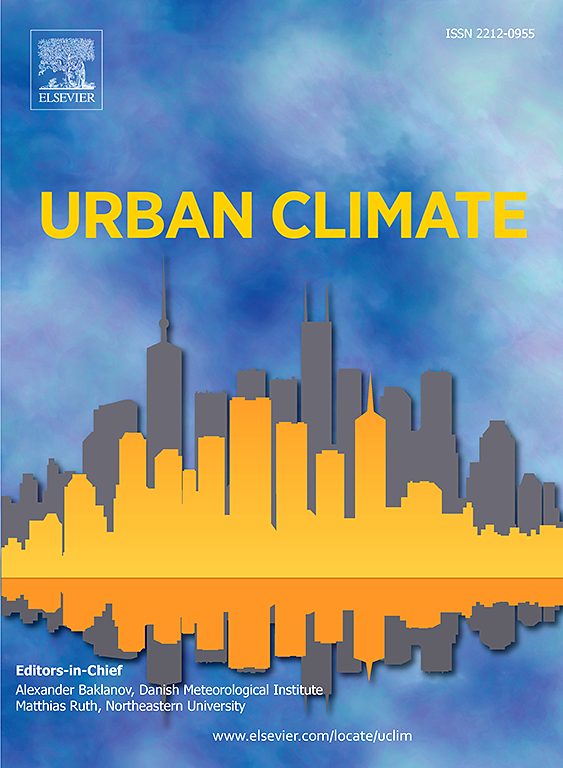Observed precipitation enhancement and suppression downwind of a major U.S. city
IF 6.9
2区 工程技术
Q1 ENVIRONMENTAL SCIENCES
引用次数: 0
Abstract
While urban enhancement of precipitation during summer has been heavily studied, there has been little research on urban effects on precipitation during other seasons. Therefore, this study assesses urban effects on precipitation throughout the year in the Atlanta, Georgia USA region during 2014–2023. Precipitation totals and frequencies of precipitation days and heavy-precipitation days from a network of 50 gauges were aggregated for 12 overlapping three-month periods. The two main methods used were the calculations of correlations between precipitation and upwind imperviousness and differences between groups of downwind gauges and control gauges. Urban enhancement and suppression of precipitation totals and heavy-precipitation days occurred east/northeast of Atlanta, primarily in Gwinnett County. Enhancement (suppression) was revealed by significant positive (negative) correlations between precipitation and upwind imperviousness and significantly larger (smaller) precipitation values at downwind gauges compared to control gauges. Precipitation totals and heavy-precipitation days were enhanced by 13 % and 19 %, respectively, during the warm season, and those two variables were suppressed by 5 % and 11 %, respectively, during winter/spring. Precipitation days were enhanced throughout the year, with the largest enhancement (7 %) occurring during summer. The urban heat island and urban aerosols are the likely causes of the urban effects on precipitation.
观测到美国一个主要城市下风的降水增强和抑制
城市对夏季降水的增强作用已被大量研究,但对城市对其他季节降水影响的研究却很少。因此,本研究评估了2014-2023年美国佐治亚州亚特兰大地区全年城市对降水的影响。从一个由50个测量站组成的网络中收集了12个重叠的3个月的降水总量和降水日数和强降水日数的频率。所使用的两种主要方法是计算降水与逆风不透水性之间的相关性以及顺风量具和控制量具组之间的差异。城市降水总量和强降水日数的增强和抑制发生在亚特兰大东部/东北部,主要发生在Gwinnett县。降水与逆风不透水性之间存在显著的正(负)相关关系,顺风量规的降水值明显大于(小于)对照量规,从而揭示了降水的增强(抑制)。暖季降水总量和强降水日数分别增加了13%和19%,冬春季降水总量和强降水日数分别被抑制了5%和11%。降水日数呈增加趋势,夏季降水日数增加最多(7%)。城市热岛和城市气溶胶是城市对降水影响的可能原因。
本文章由计算机程序翻译,如有差异,请以英文原文为准。
求助全文
约1分钟内获得全文
求助全文
来源期刊

Urban Climate
Social Sciences-Urban Studies
CiteScore
9.70
自引率
9.40%
发文量
286
期刊介绍:
Urban Climate serves the scientific and decision making communities with the publication of research on theory, science and applications relevant to understanding urban climatic conditions and change in relation to their geography and to demographic, socioeconomic, institutional, technological and environmental dynamics and global change. Targeted towards both disciplinary and interdisciplinary audiences, this journal publishes original research papers, comprehensive review articles, book reviews, and short communications on topics including, but not limited to, the following:
Urban meteorology and climate[...]
Urban environmental pollution[...]
Adaptation to global change[...]
Urban economic and social issues[...]
Research Approaches[...]
 求助内容:
求助内容: 应助结果提醒方式:
应助结果提醒方式:


